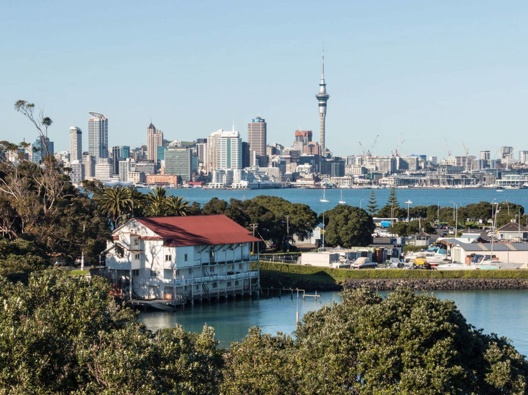Follow
the podcast on

Almost two-thirds of Kiwis say property investors are a key reason why New Zealand's house prices have skyrocketed so high, a new poll has found.
About half also put the blame on foreign buyers, while around a third say the Labour Government has played a key role.
The new OneRoof-Kantar Housing Survey polled 1,000 Kiwis in October and is part of the latest OneRoof Property Report's investigation into how house prices have continued to climb to record highs.
Housing Minister Megan Woods told the report the current prices are the result of decades of inaction in tackling housing affordability. The high number of Kiwis returning home during the pandemic also played a part.
- Today'sOneRoofReport:
* Interactive: Lockdown's biggest house price winners and losers
* Housing affordability in New Zealand has steadily worsened over the last 10 years. Here's why
* NZ's housing crisis in eight charts
* Rising house prices: Nick Smith admits National underestimated migration numbers
* New Zealand house prices: What went wrong?
Economist Tony Alexander, however, says long periods of falling interest rates were a major force in driving prices.
He agreed with those surveyed by saying property investors had taken advantage of low interest rates to continue buying more houses and push prices up.
"This perhaps has been the key characteristic of our housing market for three decades," Alexander said.
"We Kiwis have transformed our homes and the homes of others into portfolio assets used for building our personal wealth and funding our retirements – with encouragement from governments to do so."
Whatever the cause or causes, house prices have now doubled in the last seven years since 2014, putting buying out of the reach of many young Kiwis.
In 2014, around two-thirds of the nation's houses were worth less than $500,000, according to data by analysts Valocity.
Meanwhile, just seven per cent were valued at more than $1 million,
By 2021, however, just 12 per cent of Kiwi homes are worth less than $500,000, with 43 per cent now valued at more than $1m.
Four-out-of-five Kiwis polled in the OneRoof Kantar Housing Survey said they now believe house prices are too high.
That also led 62 per cent of those polled to say property investors are to blame for the ballooning prices in the past decade.
With those surveyed able to select more than one answer, 52 per cent also blame foreign buyers for the price rises.
This is despite the then Labour Coalition Government banning most foreign buyers from buying New Zealand homes in 2018 and may be linked to a belief among some Kiwis that foreign citizens are fronting up the cash for residents to buy homes on their behalf.
Thirty-five per cent also blame the current Labour Government, 24 per cent blame the National Government and 22 per cent blame the banks.
Housing Minister Woods said rather than being the cause of price rises, her government had been trying to tackle it.
"Let's be clear, the housing crisis is a result of decades of inaction, where it was assumed the market would meet the demand for more new affordable homes. Not surprisingly, it didn't," she said.
She said previous governments had not done enough to support the building of new homes, particularly affordable homes.
However, she said analysts PWC had estimated Labour changes to national planning regulations would allow for up to 100,000 new homes to be built in the next five to eight years.
Former National Housing Minister from 2012 to 2017, Nick Smith told the report the housing portfolio with all its challenges was the most stressful political appointment he had ever held.
While new housing construction fell off a cliff following the Global Financial Crisis in 2008-2009, Smith said his government had successfully started to turn that around so more homes were being built.
However, he admitted that what was underestimated in 2010 or 2011 was the sharp turnaround in New Zealand's net migration, with more people coming into the country and placing demand on the housing market.
"Many commentators think it was a change in immigration policy; it wasn't," Smith said.
"The number of residency and work permits issued was quite constant - it wasn't a big change from the Clark government to the Key government."
What "radically changed" instead was a net outflow of about 30,000 per year to Australia becoming balanced out, he said.
Alexander, meanwhile, said the fact that interest rates had fallen so significantly over the last 30 years had made it impossible for governments to control rising prices.
He said interest rates in 1987 were up in the 20s, before steadily falling until they hit record lows during the pandemic.
"Factors in favour of house prices rising have simply been way too powerful for any sort of reasonable political policy to have had much of an impact, quite frankly," he said.
Take your Radio, Podcasts and Music with you









